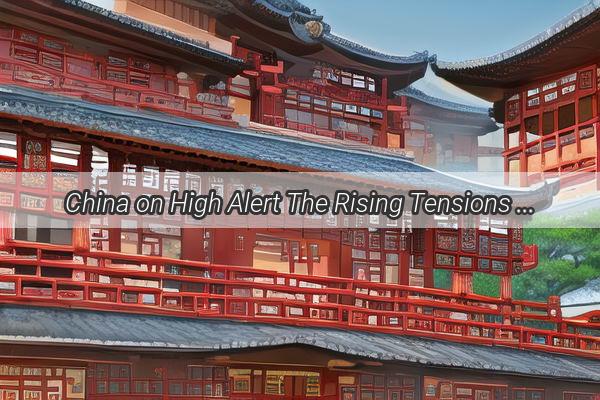China on High Alert The Rising Tensions as the US Continues Its Provocative Stance
In a world where geopolitical tensions are as unpredictable as the weather, China finds itself at the center of a brewing storm as the United States continues its series of provocations. The latest chapter in this saga is not just a test of nerves but a pivotal moment in the delicate balance of power that has been shifting on the global stage.
The U.S. has long been a formidable adversary, and its recent actions have not gone unnoticed by the Chinese government. From trade wars to military exercises in the region, the U.S. seems intent on pushing the boundaries of diplomatic decorum. But why now, and what does it all mean for the future of international relations?
The Trade Tussle: A Battle of Economic Supremacy
At the heart of the conflict lies the ongoing trade war. The U.S. has imposed tariffs on billions of dollars' worth of Chinese goods, citing concerns over intellectual property theft and unfair trade practices. China, in turn, has retaliated with its own tariffs, leading to a stand-off that has sent ripples through the global economy.
This battle for economic supremacy is not just a matter of dollars and cents. It's a clash of ideologies, with the U.S. advocating for free-market principles and China defending its state-led economy. As the trade war rages on, businesses and consumers around the world are feeling the pinch, and the stakes are sky-high.
Military Exercises: A Show of Strength or a Pretext for Provocation?
The U.S. has also stepped up its military presence in the Asia-Pacific region, conducting joint exercises with allies like Japan and South Korea. While these drills are often portrayed as necessary for maintaining regional security, many in China view them as a direct challenge to its sovereignty.
China's expanding military capabilities, particularly its navy and air force, have not gone unnoticed. The U.S., sensing a changing dynamic in the region, has responded with increased military engagement. However, the question remains: is this a show of strength, or a pretext for further provocations?
Diplomatic Strain: Can Words Replace Weapons?
Despite the tensions, both nations have emphasized the importance of diplomatic dialogue. High-level meetings have been scheduled, and both sides have committed to finding a peaceful resolution. Yet, the path forward is fraught with challenges.
China's leadership, under President Xi Jinping, has made it clear that the country's rise is inevitable and that it will not be deterred by external pressures. The U.S., for its part, remains steadfast in its commitment to promoting democracy, human rights, and free markets.
The Global Implications: A New World Order?

As the U.S. and China engage in a high-stakes game of brinkmanship, the rest of the world watches with bated breath. The outcome of this conflict could redefine the global order, with significant implications for trade, security, and geopolitical power.
If the U.S. succeeds in containing China's economic growth and military ambitions, it could solidify its position as the preeminent global power. Conversely, if China manages to navigate these challenges and continue its rise, it could emerge as a true superpower, challenging the U.S. on multiple fronts.
Conclusion
The repeated provocations by the U.S. have placed China on high alert, and the nation is preparing for a long and arduous battle. As the world watches, it is clear that the fate of the global order hangs in the balance. Whether diplomacy can outpace aggression remains to be seen, but one thing is certain: the U.S. and China's relationship is at a critical juncture, and the decisions made in the coming years will shape the world we live in for decades to come.








